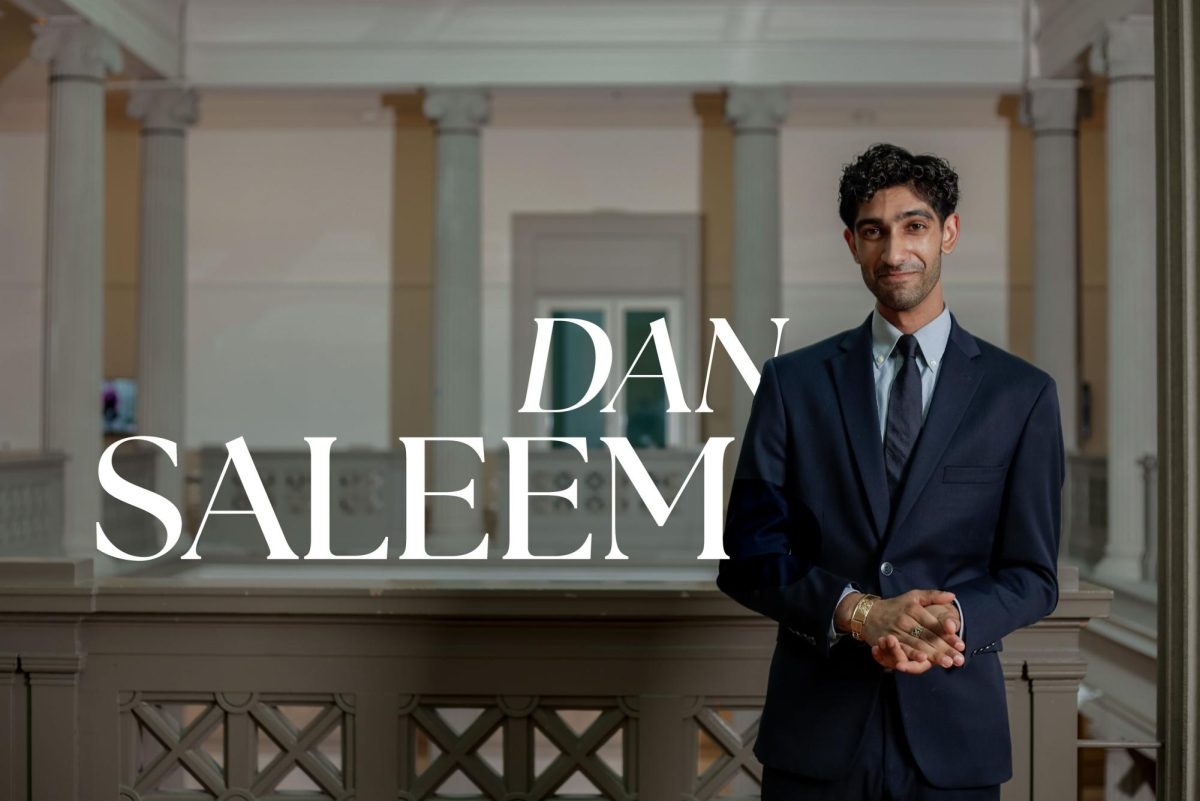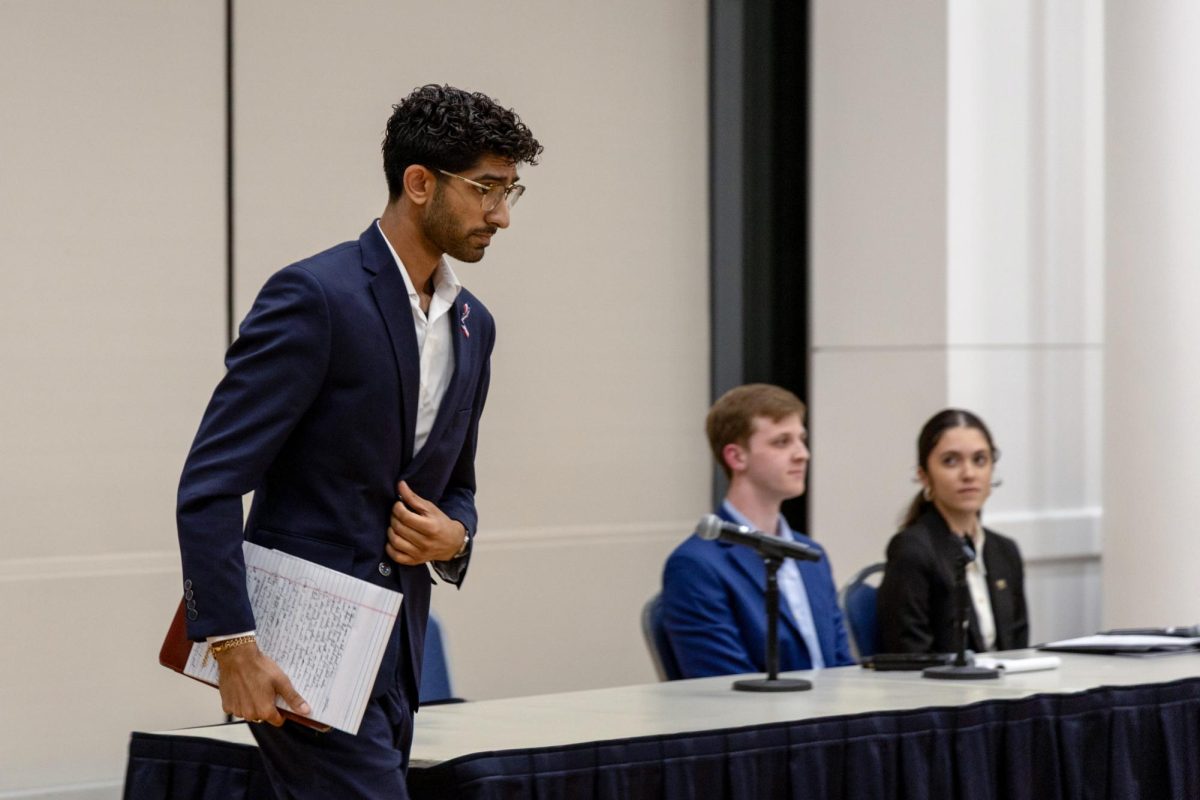Year: Junior
Major: Political science and history
Hometown: Westchester, New York
Student organizations/activities: GW-TV, Shakespeare Company, member of Dean Colette Coleman’s student cabinet, GW Dining student advisory panel
Prior SGA experience: Former Columbian College of Arts & Sciences senator, director of Military and Veteran Affairs on former SGA President Christian Zidouemba’s executive cabinet
Favorite D.C. restaurant: Panda Express
Go-to GW study spot: Outside of Duquès Hall on a sunny day
Who is your role model: My grandmother
Ideal walk-out song: “New York, New York” by Frank Sinatra
GW Deli order: Bacon, egg and cheese on a pumpernickel bagel
Dan Saleem said he wouldn’t have voted for himself last year.
In his 2024 campaign for Student Government Association president, Saleem pledged to dismantle the governing body’s bureaucracy by halving the size of the executive cabinet and work to ensure students feel welcome to express their concerns about GW to the SGA.
But he lost, falling more than 650 votes behind the second-place candidate during the first round of ranked-choice voting. He also faced disqualification last year after the Joint Elections Commission indicted him for collecting endorsements from two student groups before the official election campaign period commenced.
Saleem said he and his team are “feeling really good” about his chances of winning this year because he’s now running as his “authentic” self. Last year he hid the “genuine Dan” because he was scared students would attack him for his identities, primarily his status as a low-income and military student, Saleem said.
He said his platform last year was “out of touch” because it centered on his experience in the SGA and wasn’t crafted in response to his peers’ concerns.
“I don’t think that I should have run last year,” Saleem said. “I don’t think I had enough experience, but this year, I am unapologetically me. I want to own who I am, and I want to let students know that I won’t be a president that you’re not going to be able to get in contact with. I’m going to be accessible.”
As he eyes the SGA’s top office for a second time, Saleem said he will bring the humility he gained from last year’s election loss to the presidency, pledging that he won’t pretend to have all the answers. Instead, he will listen to and learn from students about their concerns. Then, he’ll act, Saleem said.
Saleem said he built a platform that appropriately addresses students’ needs and larger systemic issues but doesn’t focus on niche concerns raised by a few students — a predicament he said persists under the current SGA administration.
He said, for example, he’s heard from dining officials that the SGA is focused on small problems like “soggy” French fries and fruit options.
“Those are minute things,” Saleem said. “Still important but minute. The SGA has this incredible opportunity to have the ear of President Granberg, to have the ear of changemakers, and the administration that can do things far more than soggy French fries.”
He also said he will continue former SGA President Arielle Geismar’s policy of allocating thousands of dollars from the SGA executive budget to reduce the cost of morning-after contraceptive pills distributed from the University’s vending machines from $15 to $5.
Geismar donated $1,000 of her budget to the cause in September 2023, bringing the price down from $30 before donating the remainder of her funds to GW Reproductive Autonomy and Gender Equity in April 2024.
Saleem said he understands the power that the SGA holds to advocate for all students on campus, and if elected, will use the office to elevate the diverse voices of students to GW leadership, regardless of whether or not he agrees with the sentiments — especially as tensions surrounding the war in Gaza and free speech spill over onto GW’s campus.
He said he sits on an invite-only cabinet of student leaders for Dean of Students Colette Coleman and has brought community members, including members of Students for Justice in Palestine and the Student Coalition for Palestine, to meetings “more than” twice because he feels conversations surrounding the war in Gaza are necessary to have, even if they’re “tough.”
A representative from the coalition — who requested anonymity because of fear of repression and doxxing — said Saleem invited a member of the coalition to one of the cabinet meetings, who later attended on behalf of the organization. They said they were not invited a second time.
Saleem also said he’s met with members of GW Hillel and other organizations that he said would prefer to remain nameless due to the nature of the “situation” to help ensure he understands how the war is impacting every student.
“I refuse to run for president and not be ready to have those conversations because part of being president is being uncomfortable,” Saleem said.





